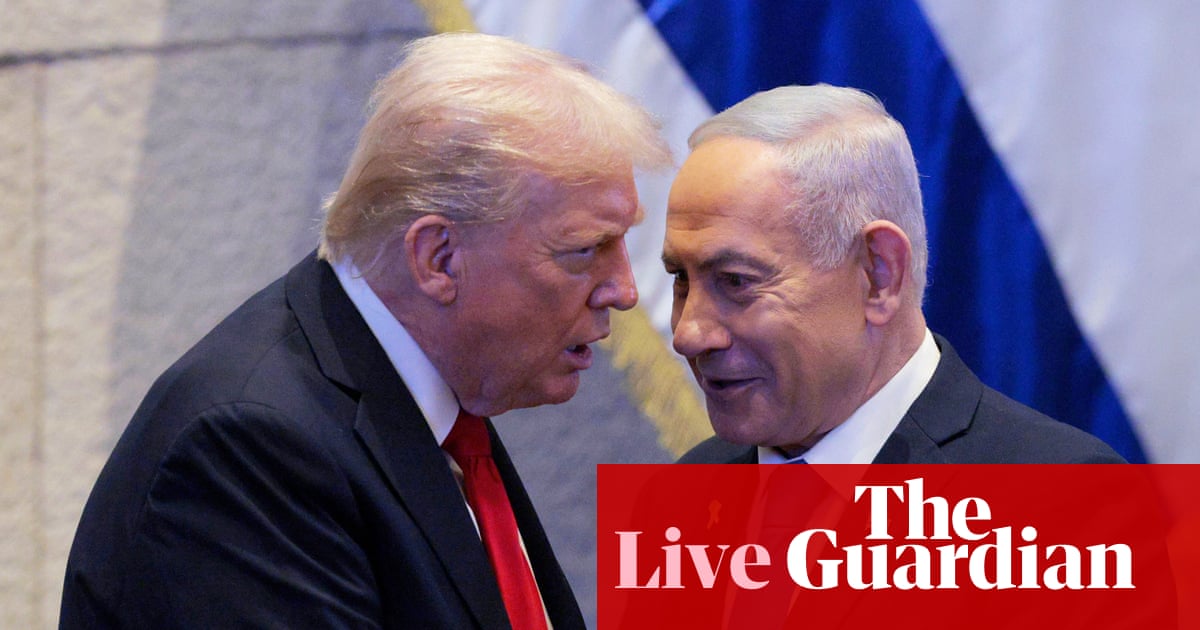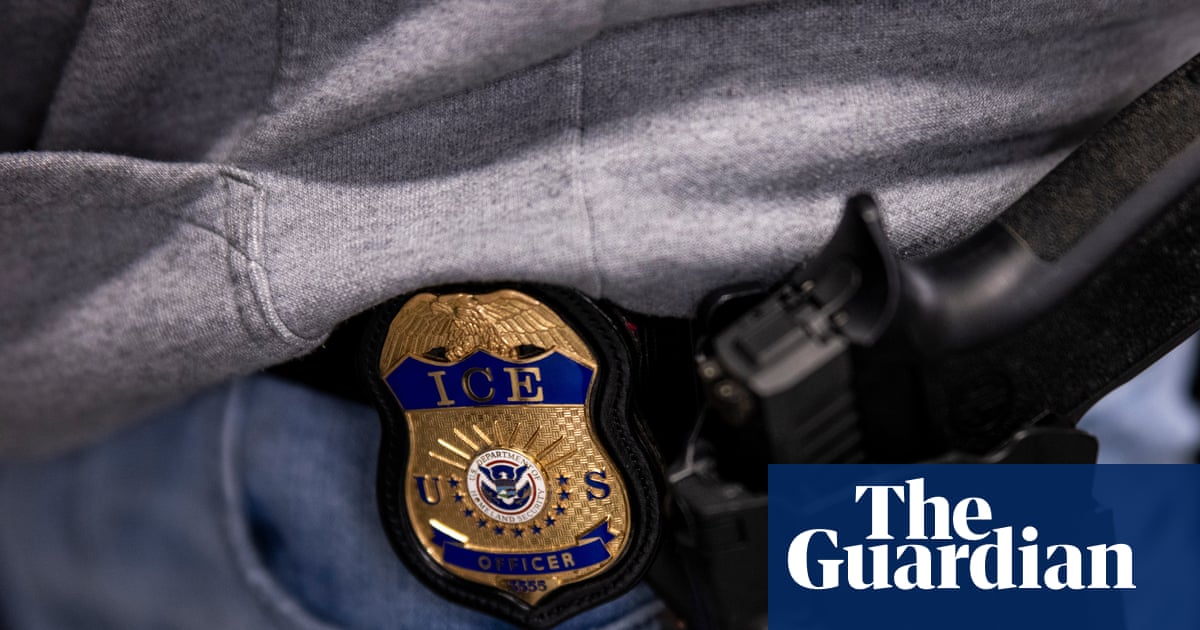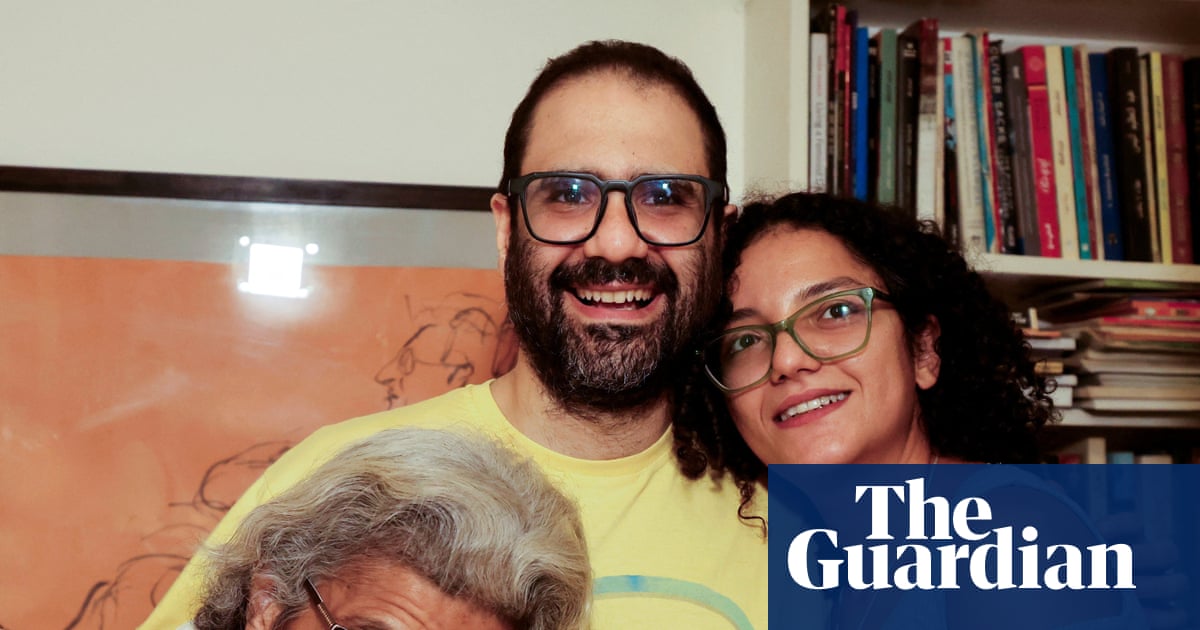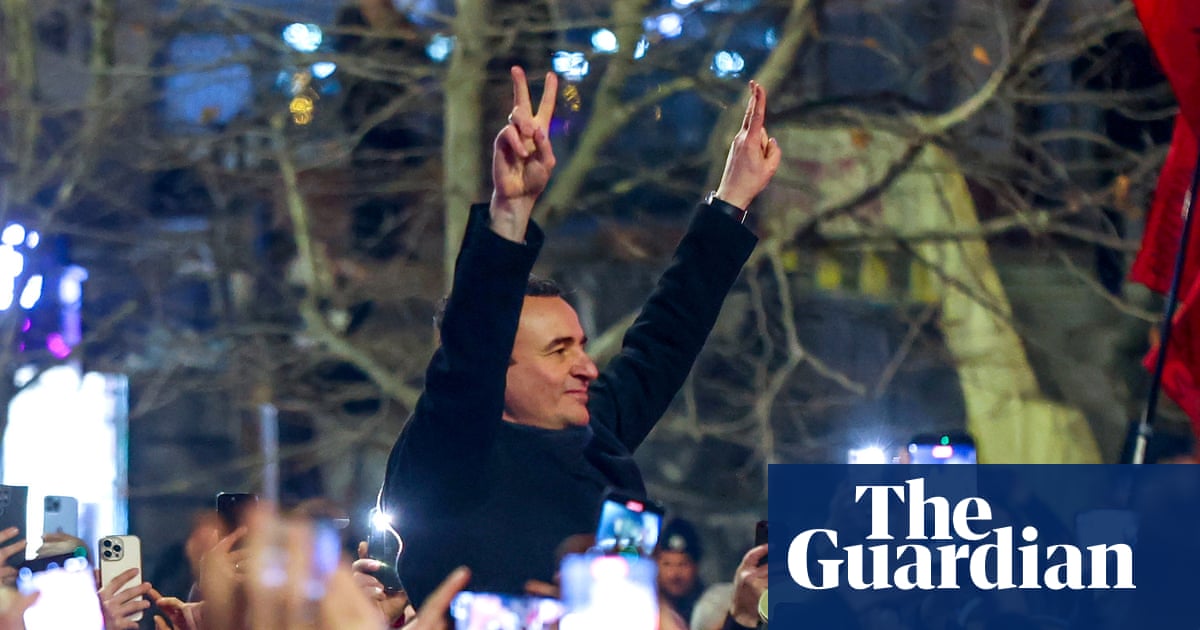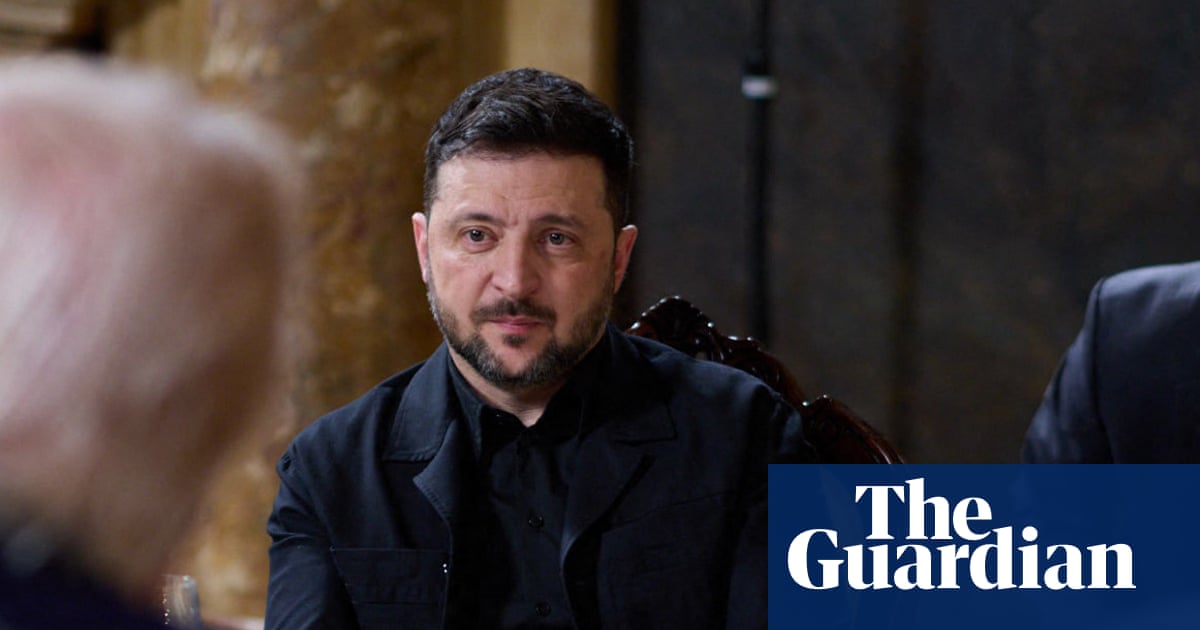When Donald Trump visited Qatar in May, he promised to defend the tiny, wealthy emirate and its rulers. “We are going to protect this country,” Trump declared on his state visit, where he was treated like royalty and honored in gilded palaces. “It’s a very special place, with a special royal family … They are great people and they are going to be protected by the United States.”
Over two decades, Qatar spent billions of dollars to upgrade the largest US military base in the Middle East and spent many more billions to buy US warplanes and other weapons. In May, as the president prepared to visit, the Qatari government donated a luxury Boeing jet, a “palace in the sky” valued at $400m, which is now being refitted so Trump can use it as Air Force One.
But none of that, including Trump’s exuberant promises of protection, stopped Israel from attacking Qatar on Tuesday. Israel launched a brazen airstrike against a group of Hamas leaders who were meeting in the country’s capital, Doha, to consider the latest Gaza ceasefire proposal submitted by Israel and the US. The senior Hamas officials, including its top negotiator Khalil al-Hayya, survived the attack but six others were killed.
That Israel was trying to kill the negotiators – and to destroy Qatar’s role as a mediator between Hamas and western powers – is no surprise. For nearly two years, the Israeli prime minister, Benjamin Netanyahu, has consistently obstructed ceasefire talks and torpedoed potential deals by adding new demands or changing his mind. And when that hasn’t worked, Netanyahu has resorted to assassinating Hamas leaders in an apparent bid to stall negotiations.
Under Netanyahu, Israel is now a rogue state posing the greatest danger to stability in the Middle East. With unconditional political support and an unlimited supply of US weapons (starting under Joe Biden’s administration and expanding under Trump), Israel can bomb virtually anyone and anywhere in the region, with impunity. Over the past few months, Israel has bombed Iran, Lebanon, Syria, Yemen – and now Qatar, with little consequence beyond tepid condemnation from some western powers. And that’s not to mention Israel’s genocidal war on Gaza, which has killed more than 64,000 Palestinians and instigated a famine in parts of the territory.
Netanyahu seems to have succeeded in blowing up the latest negotiations and Qatar’s role as an intermediary. On Tuesday, the Qatari prime minister, Mohammed bin Abdulrahman bin Jassim al-Thani, called the Israeli attack “an act of state terrorism”, and vowed that the emirate would continue its work as a mediator. But he seemed resigned that the current talks had collapsed and Qatar would not be able to broker a ceasefire between Israel and Hamas anytime soon. “When it comes to the current talks, I don’t think there is something valid right now after we’ve seen such an attack,” he said.
Since the regional chaos unleashed by the US invasion of Iraq in 2003, Qatar’s ruling family has tried to position itself as a global mediator, using its enormous natural gas wealth to distinguish itself as a small emirate capable of keeping channels open between enemies. Over the years, Doha has hosted peace negotiations between the US and Taliban leaders, and talks for prisoner exchanges between Iran and Washington. But that muscular foreign policy also pushed Qatar into conflict with its two larger and more powerful neighbors, Saudi Arabia and the United Arab Emirates, which accused Doha of financing terrorism and being too close with Iran. In 2017, the two countries led a blockade against Qatar – and Trump initially supported the siege during his first term as president, claiming that Qatar “has historically been a funder of terrorism at a very high level”.
Qatar survived the blockade, which was lifted in January 2021, partly thanks to mediation by Jared Kushner, Trump’s son-in-law and senior White House adviser during his first term. Qatar also doubled down on its regional efforts as a negotiator. Aside from investing $8bn to upgrade Al-Udeid air base outside the capital, which houses more than 10,000 troops and is the largest US military installation in the Middle East, Qatar tried to prove itself indispensable to Washington in other ways, especially by hosting non-state groups that are labeled as terrorists by western powers.
Qatar has hosted several of Hamas’s top political leaders since 2012, when they were forced out of Syria by Bashar al-Assad’s regime. Qatari officials insist they allowed Hamas leaders to settle and open offices in Doha only because, they say, Barack Obama’s administration asked the emirate to establish an indirect channel that would enable the US to communicate with Hamas, which Washington had designated as a terrorist organization in the 1990s.
Despite Qatar’s history of punching above its weight in international diplomacy, the Israel-Hamas negotiations have been the most high-stakes undertaken by Qatar’s emir, the 45-year-old Sheikh Tamim bin Hamad al-Thani. For nearly two years, Qatar’s leaders had exerted significant energy and political capital to negotiate a ceasefire and the release of Israeli hostages in Gaza, only to be repaid with an Israeli attack on their country. Qatar’s leaders also learned a hard lesson: Trump’s promises of protection are largely worthless, especially when it comes to Israel. Even Qatar’s extravagant donation of a luxury jet to Trump – possibly the most expensive gift from a foreign government in US history – did not make a difference.
After Tuesday’s attack, Trump said he had assured Qatar’s ruler in a phone call that “such a thing will not happen again on their soil”. But Israeli officials were quick to declare that they will not hesitate to target Hamas leaders in Qatar again. As Israel’s ambassador to the US, Yechiel Leiter, told Fox News: “If we didn’t get them this time, we’ll get them next time.” And Israel’s ambassador to the United Nations was even more blunt: “There will be no immunity for terrorists – not in Gaza, not in Lebanon, and not in Qatar.”
Israel’s sense of impunity will continue to grow, as long as US presidents fail to restrain its rogue leaders from more brazen and lawless acts.
-
Mohamad Bazzi is director of the Hagop Kevorkian Center for Near Eastern Studies, and a journalism professor, at New York University

 3 months ago
47
3 months ago
47


